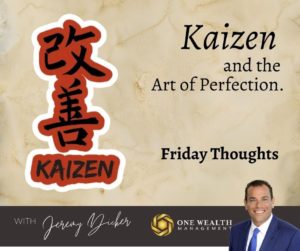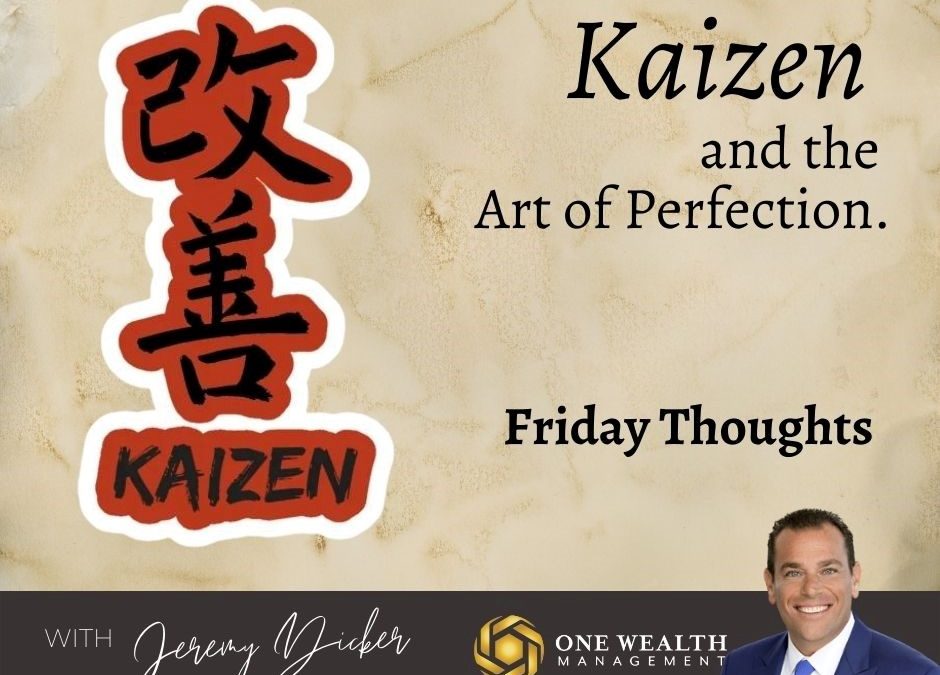 Kaizen is a Japanese term best translated as “change for the better” or “continuous improvement.” Perhaps my favorite definition of Kaizen says it all, “The art of perfection.”
Kaizen is a Japanese term best translated as “change for the better” or “continuous improvement.” Perhaps my favorite definition of Kaizen says it all, “The art of perfection.”
It’s a business philosophy that’s interwoven within every aspect of Japanese enterprise. Kaizen means that any operation can be continuously improved, and that includes all employees.
Kaizen sees improvement as a gradual and methodical process, one with no beginning and no end, as it’s built into the very core of productivity.
It’s a concept that interests me greatly, and I often find myself stopping and taking account of my business and even life, measuring my Kaizen.
I also take stock of great examples of Kaizen from my peers and even clients.
For instance, I was with a longtime client this week. He’s done very well for himself and still continues to lead by example.
He made his first million when he was only 22. The first five million dollars came by 25. After that, as he puts it, who cares?! He’s fifty years old now and has been retired for eleven years.
But if you met him, you probably wouldn’t know that he had a cent. He constantly gives back to the community and is always trying to be a mentor – without looking for accolades or any fanfare.
He’s never wavered in his humility, never trying to “keep up with the Joneses.” Ever. (He could buy the Joneses and then buy the whole block, yet it doesn’t matter to him.)
Yet, when Facebook or Apple call because they need his help on platform-related issues, he’s the same guy, operating by a steadfast internal compass.
To me, it’s obvious that he’s focused on continuously working towards maximizing his potential as a human being – self-actualization. His dedication to improvement in all aspects of his life exhibits the best of the Japanese word, Kaizen.
Interestingly, Kaizen doesn’t just set us a high philosophical bar and then leave us to our own devices; it includes 3 Pillars, 4 Principles, 5 Elements, and more as steppingstones to actually manifest Kaizen.
And a big part of those steps is the inclusion of ideas, voices, and practices that you otherwise might not consider. Inclusion is especially important with important decisions.
It’s about listening to everyone, filtering without ego, and striving for deep understanding. True leadership is having a strong desire to improve even when others think you’ve “made it” and have it all figured out.
I hope my thoughts and actions are aligned with Kaizen and strive to embrace it in my life. Once you see things through that lens, Kaizen is everywhere if we just open our eyes and minds to it.
Certainly, Kaizen provides us not just a word but a philosophy of action to live by.
-J.D.

